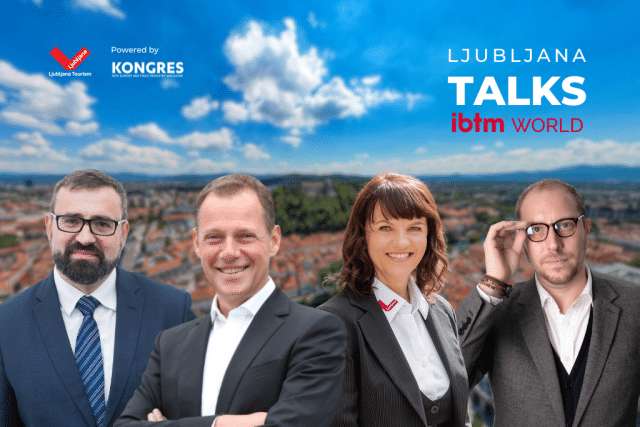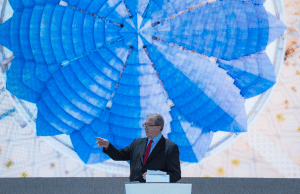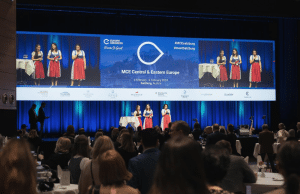Afterwards, Petra Stušek and Vasyil Zhygalo joined the hosts and discussed some quite interesting points.
They said that in the aftermath of COVID-19, the events industry is setting its sights on long-term strategies, looking beyond the immediate future to 2030 with confidence. This forward-thinking approach involves adapting rapidly to blend postponed and new events, shaping updated business approaches to accommodate the changing landscape.
On the topic that often reemerges in these conversations, Petra and Vasyl agreed that artificial intelligence is an exciting tool within the industry, seen as a means to deepen human connections and expedite results. While acknowledging its potential, there’s a strong emphasis on using AI ethically, ensuring it supplements rather than replaces the crucial human element in events.
They pointed out that the expectations from events like IBTM World revolve around meaningful connections, business outcomes, and educational value. These events generate a multiplier effect, not only benefiting destinations during the event but also by attracting future events and encouraging exploration by attendees.
Sustainability initiatives take center stage in event management, with a commitment to achieving net-zero status. These efforts include using recyclable materials, reducing emissions, promoting renewable energy sources, and tackling waste management, showcasing a holistic approach towards sustainability.
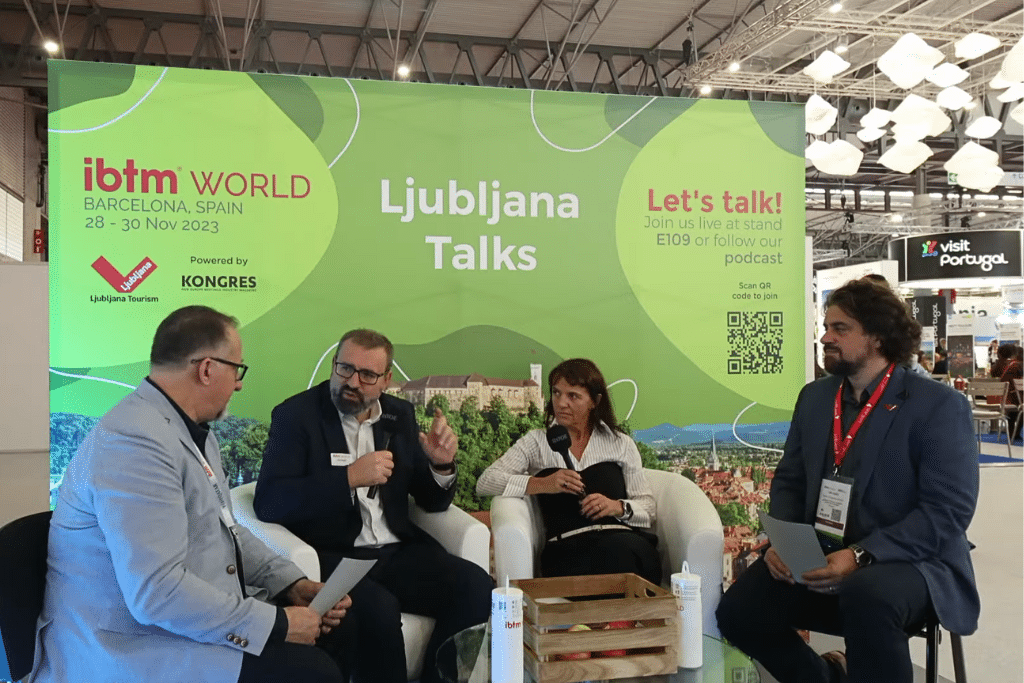
The next speaker was Alistair Turner, a prominent figure in the events industry, believes that the IBTM World Trends Report is an essential guide for understanding where the industry is heading. This report isn’t just a bunch of research findings. It’s a treasure trove of insights gathered from inside the events industry worldwide, spanning different sectors and global investments.
When talking about AI, Alistair breaks it down into what he calls the “three A’s in English.” First up is “accessibility.” He sees this as a big deal for 2024, thanks to AI’s impact. Then there’s “automation,” which he thinks will be a game-changer, especially for event organizers facing intense pressure. Lastly, he talks about “augmentation,” highlighting how AI can supercharge creativity in live events.
Alistair’s take on the future is a mix of hope and reality. He sees 2024 as a make-or-break year for humanity in the 21st century.
He agrees with Julius Solaris that we’re currently experiencing the best times for events. The pandemic changed things, shifting the focus from sheer numbers to qualities like strategy, creativity, and engaging the audience. Alistair believes that AI will take on the hard stuff, freeing up time for people to be more creative and tell better stories.
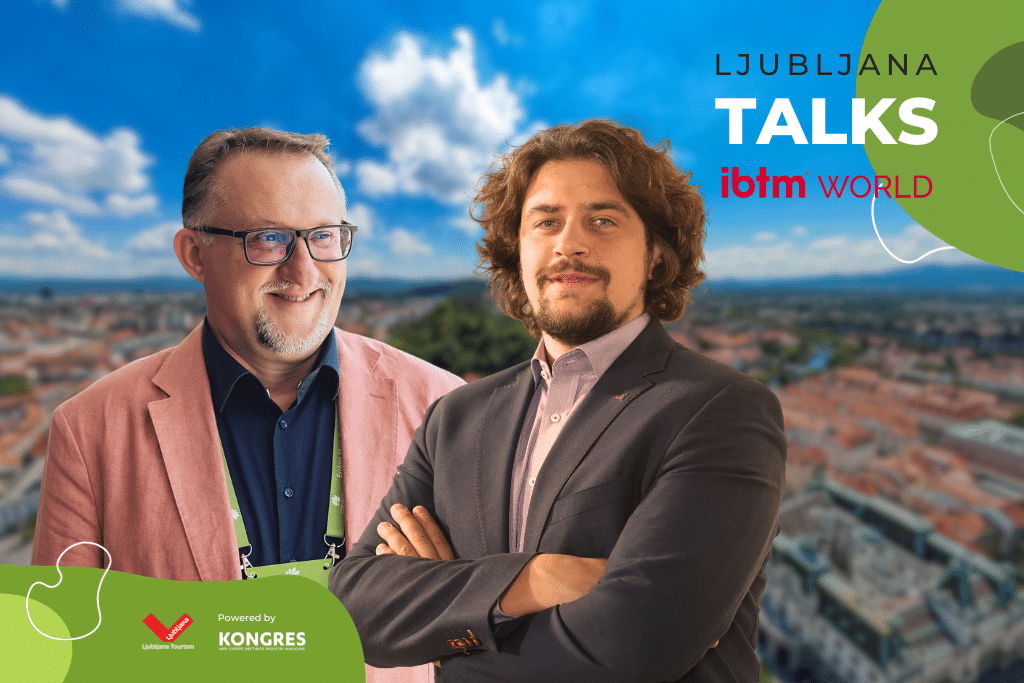
Another guest who joined Ljubljana Talks’ last day was Tomaž Krušič, the Managing Director at Intours DMC & INK conferences.
Tomaž shared some key insights about the growth of Slovenia in the events industry and highlighted the impact of marketing strategies over the years. He mentioned that although his operations span the entire region, Slovenia is increasingly standing out. While destinations like Dubrovnik and Split remain popular due to their infrastructure and flight availability, guests are pleasantly surprised by Slovenia’s diversity, quality, and unique experiences.
When asked about creating memorable events, Tomaž emphasized creativity as a fundamental aspect. He explained how seemingly simple yet genuine experiences, like visiting a beehive, could leave a lasting impression.
Regarding the role of Destination Management Companies (DMCs) in event planning, Tomaž stressed their value in providing creativity, connections with local suppliers, and solving potential issues. He also discussed the continued importance of events like IBTM in Barcelona for networking, foreseeing minimal changes to this format in the future.
Tomaž underlined the trend toward sustainable incentives but emphasized that the core focus remains on providing enjoyable experiences through good food, fun activities, and beautiful locations. He believes that incentives are a reward for participants to relish.
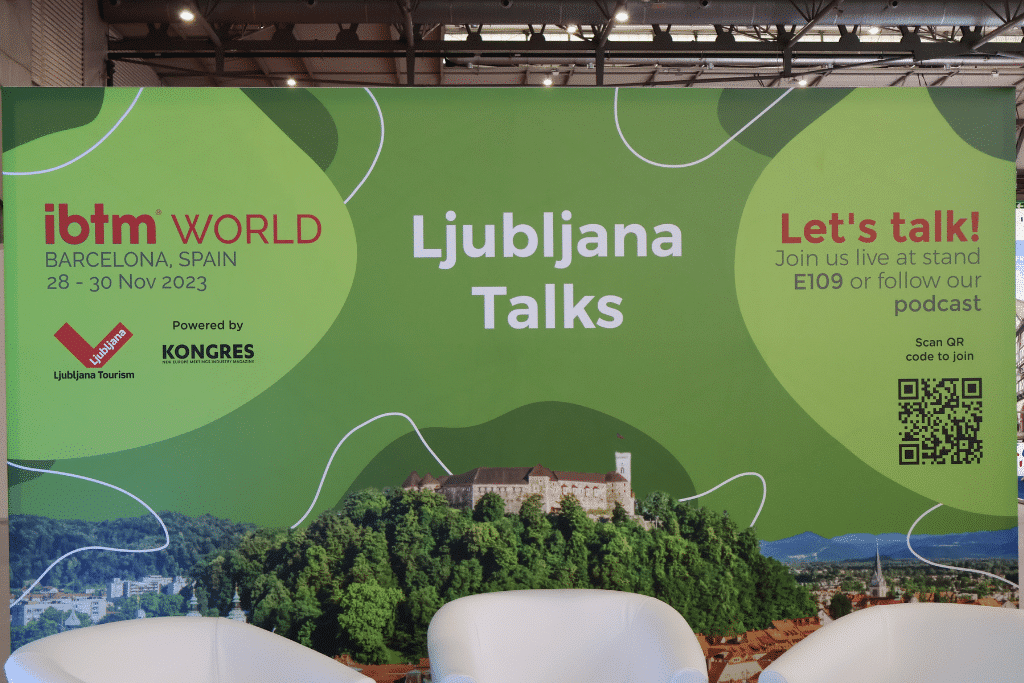
When asked where he finds inspiration, he said: “Actually, the biggest inspiration would be really, it sounds perhaps a bit old fashioned, making people happy when coming to the destination. You are really happy two times in the process of event planning: the first moment is when you get an event confirmed, and the second one is when they are leaving and when they are happy.”
As the curtains fell on the Ljubljana Talks at IBTM World, it became evident that the future of events lies in a delicate balance between sustainable practices, technological advancements, and the timeless pursuit of crafting remarkable, emotionally resonant experiences for attendees.


